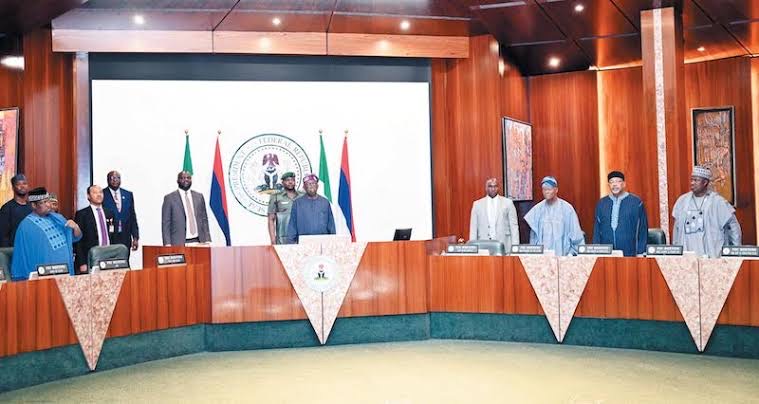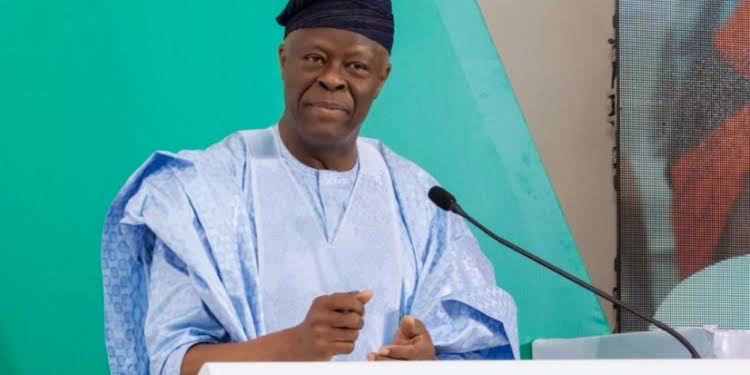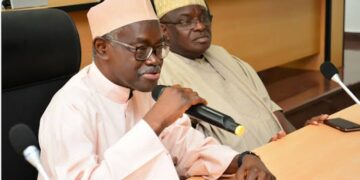On Monday, the Minister of Finance and Coordinating Minister of the Economy, Wale Edun, announced that the Federal Executive Council (FEC) has approved an economic stabilization bill, which is set to be submitted to the National Assembly. This bill, once passed, will introduce sweeping reforms aimed at stabilizing and improving Nigeria’s economic landscape.
During a briefing with State House correspondents following the FEC meeting, Wale Edun explained that the proposed bill includes a variety of targeted measures, draft laws, and policies primarily focused on taxation and fiscal management. These initiatives are designed to enhance the economic environment, which has been under pressure from various global and domestic challenges.

Edun pointed out that the bill’s foundation stems from the recommendations of the fiscal policy and tax reform committee, established by President Bola Tinubu in August 2023, under the leadership of Taiwo Oyedele. The committee was tasked with developing strategies for fiscal reform, taxation, and other financial policies to stimulate Nigeria’s economy.
“To implement the recommendations of the fiscal policy and tax reform committee, changes to several laws will be necessary,” Edun stated. He emphasized that the bill encompasses reforms that would touch on multiple aspects of the economy, calling for alterations to key legal frameworks that have governed Nigeria’s fiscal and monetary systems for decades.
One of the critical elements of the bill, according to Edun, is the proposed modification of the Foreign Exchange Act. This amendment aims to enhance liquidity in Nigeria’s foreign exchange market and promote the use of electronic transactions rather than cash, which has been a challenge in the informal cash-based economy.
“The new bill would give the Central Bank of Nigeria (CBN) greater power to attract international funds, especially from international money transfer organizations and other entities that engage in foreign exchange business. This, in turn, will facilitate smoother remittances into the country, strengthening Nigeria’s financial position,” he said.
Edun also revealed that the bill includes an amendment to the Companies Income Tax Act, which would enable Nigerian professionals with specialized skills, expertise, and connections to provide services to foreign companies without the requirement for those companies to register their operations in Nigeria. This is expected to create a wealth of new employment, income, and entrepreneurial opportunities for Nigerians, as well as fostering greater integration of Nigerian talent into the global market.

“This change in the Companies Income Tax Act will open up a vista of employment opportunities, income opportunities, and entrepreneurship opportunities for Nigerians,” Edun noted, highlighting the significance of this amendment in fostering job creation and economic growth within the country.
Further, the proposed bill would make adjustments to the Fiscal Responsibility Act, particularly concerning government-owned enterprises. Under the new legislation, these enterprises would be required to share their surpluses more effectively, while also establishing reserve funds from their revenues. This move is intended to improve the financial discipline and sustainability of these state-run entities.
“There are changes to the Fiscal Responsibility Act as well, which affect, in particular, the government-owned enterprises and how they are to share their surpluses, and how they are to put in place reserve funds for building surpluses from their revenues,” Edun elaborated.
He emphasized that the bill is highly detailed and comprehensive, covering a wide array of fiscal and economic policies. He added that the full contents of the bill will be made available to the public at a later stage, ensuring transparency and allowing for public scrutiny.
This proposed economic stabilization bill is seen as a critical step in Nigeria’s efforts to regain economic stability amid rising inflation, fluctuating oil prices, and other macroeconomic challenges. By addressing core issues such as foreign exchange management, taxation, and the operations of government-owned enterprises, the bill is expected to lay the foundation for sustained economic growth and development.
Edun’s remarks indicate that the Nigerian government is taking proactive steps to adapt to changing economic realities and is committed to fostering a more business-friendly environment. These reforms are expected to make Nigeria a more attractive destination for both local and international investors, while also improving job prospects and economic opportunities for its citizens.

































